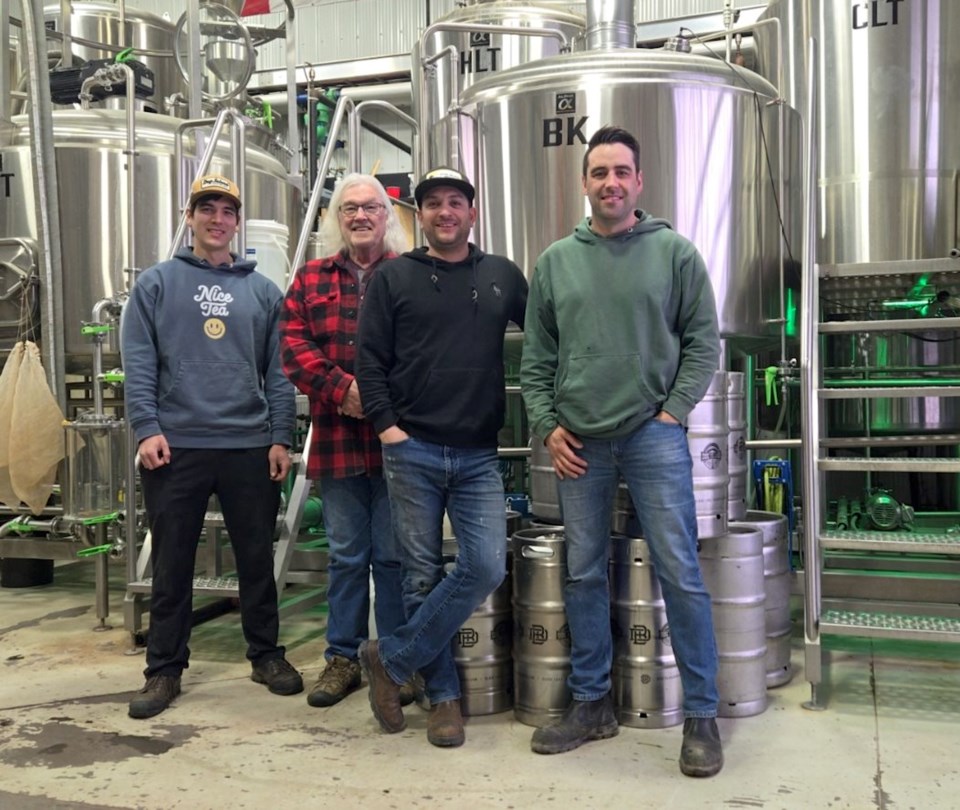It’s no secret — Albertans are fond of their beer, as evidenced by the boom of microbreweries that have opened across the province in the last 15 years.
And while some breweries in the southern portion of the province are thankful for a recent cap on federal alcohol tax increases, two brewers hailing from northern Alberta have a different opinion.
On March 9, federal Finance Minister Chrystia Freeland announced the annual alcohol excise tax increase, which hit liquor store shelves April 1, would not be tied to the 4.7 per cent inflation rate and instead will be capped at two per cent for the next two years.
But Chad Paulson, co-owner of Dog Island Brewing out of Slave Lake, said he doesn’t see a need for an increase in the first place.
“There’s really no need, the taxes that we pay already is enough. Taxes on beer and taxes on spirits is insane, so we’re very, very against it,” said Paulson during an April 4 interview.
“They said they were going to do four (per cent) and they went two (per cent)? Oh, a big thank-you, but it’s not — you’re still going to raise it, they’re still going up.”
Paulson owns and operates Dog Island Brewing alongside co-owner and long-time buddy Ben Fiddler. During a March 27 presentation to the Rotary Club of Athabasca, both Paulson and Fiddler said they’re still recovering from the symptoms of COVID-19, which have translated to climbing expenses and lower sales for the company.
“Stay the course and let us catch up, let us make some money,” said Paulson.
According to Fiddler, Dog Island’s pre-COVID sales were broaching 500 units, or flats and kegs, per week, but following the pandemic, the highest weekly sales have reached is 200 units.
“We’re slowly getting back to it, but it’s a big climb still,” Fiddler told Rotarians.
Industry origins
The pair got their start in craft beer ten years ago when Fiddler picked up his first home brewing kit.
“Ben was travelling around and trying all these new beers, and I think that’s the lightbulb that went off in his head back in 2015, 2014,” said Paulson. “It didn’t take much convincing for myself when Ben said, ‘Hey, we should brew beer.’
“It sounded like a pretty cool thing to try out at the time, and who doesn’t like beer?” he added.
Changes to Alberta’s regulations around minimum production capacity for breweries in 2013, combined with a downturn in the oil and gas industry in 2015, led the pair to turn their shop hobby into full-fledged careers.
After making large purchases on even larger equipment and securing space in the same shop occupied by their previous employer, Fiddler’s dad, Dog Island Brewing was born.
The brewery has seen success throughout the province with its core products, including its ever-popular Saints and Sinners American-style India Pale Ale and its Irish red ale Rise From the Ashes, named after Slave Lake’s recovery from fires that swept the town.
A new direction
Fiddler and Paulson operate a brewhouse and taproom with 18 taps in Slave Lake, and despite the slow bounce back from COVID and inflation affecting everything from grain prices to can costs, the pair are looking forward to a new avenue of brewing.
Dog Island launched their first ready to drink (RTD) product, Nice Tea, after the pandemic, and said the drink’s success quickly caught up to other craft teas on the market.
“RTD’s were the game-changer for sure,” Paulson told Rotarians. “These have surpassed beer sales in a lot of places. It just seems like more people prefer RTD’s.”
With lower costs and less wait time, drinks like Nice Tea and its Pink-182 hard pink lemonade have allowed the organization to begin bridging their growing expenses gap and return to pre-COVID profits.
And the pair said they’re not stopping there — with plans to create more options like RTD palomas, margaritas, and radlers, the usually-busy summer season is set to be a busy one for the brewers.
“On top of that, (were) just trying to do more events, getting people into the brewery,” said Paulson. One goal is to get a cornhole league up and running at the taproom, and Paulson said partnerships with local events, like the Kapawinihk Triathlon held in Athabsaca, are still on their radar, although they do have sights set beyond the area.
“We have looked at maybe potentially doing a tap room in a city location, just to offset the winter months. That’s something we’ve been really looking at,” said Paulson. “Throughout the year in the city, there’s lots of people that go to breweries.
“Say we had a little satellite in Calgary, we could probably make a lot of money and it would offset the downturn in the Slave Lake area.”




